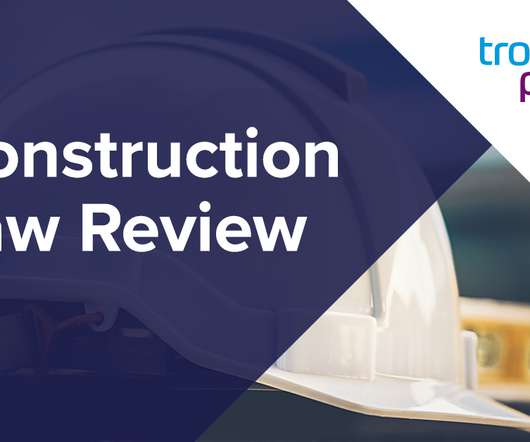Change Directive v. Change Order v. Construction Change
Best Practices Construction Law
APRIL 28, 2015
When you are dealing with changes on a project, they can be classified, treated, reviewed, and compensated on a different basis. Perhaps the best description is included in Tennessee Department of Transportation’s new specifications (pdf) that were release earlier this year.














Let's personalize your content